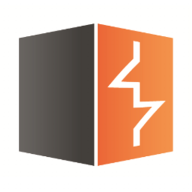

PortSwigger Burp Suite Professional and GitHub Code Scanning compete in the application security testing category. PortSwigger Burp Suite Professional holds the upper hand for manual testing depth, whereas GitHub Code Scanning excels in automation and integration.
Features: PortSwigger Burp Suite Professional offers extensive manual testing capabilities, deep vulnerability assessments, and robust penetration testing tools. GitHub Code Scanning provides seamless integration with development tools, automated code analysis, and is highly effective in continuous security monitoring.
Room for Improvement: PortSwigger Burp Suite Professional could improve user experience in advanced functionalities, simplify its complex features, and enhance the intuitiveness of its interface. GitHub Code Scanning could benefit from more comprehensive reporting features, increased depth in manual control, and enhancements in flexibility for diverse code bases.
Ease of Deployment and Customer Service: PortSwigger Burp Suite Professional is noted for its complex deployment and significant learning curve but is backed by responsive customer support. GitHub Code Scanning features cloud-based deployment that is intuitive and integrates seamlessly, coupled with timely support services, making it user-friendly.
Pricing and ROI: PortSwigger Burp Suite Professional's pricing is seen as high but justified due to its comprehensive features, offering substantial ROI through detailed testing capabilities. GitHub Code Scanning is valued for its cost-effectiveness in the online service model, aligning pricing with its automation features, providing substantial ROI via its seamless CI/CD integration.
| Product | Market Share (%) |
|---|---|
| PortSwigger Burp Suite Professional | 2.1% |
| GitHub Code Scanning | 1.6% |
| Other | 96.3% |
| Company Size | Count |
|---|---|
| Small Business | 17 |
| Midsize Enterprise | 14 |
| Large Enterprise | 35 |
Code scanning is a feature that you use to analyze the code in a GitHub repository to find security vulnerabilities and coding errors. Any problems identified by the analysis are shown in GitHub.
Burp Suite Professional, by PortSwigger, is the world’s leading toolkit for web security testing. Over 52,000 users worldwide, across all industries and organization sizes, trust Burp Suite Professional to find more vulnerabilities, faster. With expertly-engineered manual and automated tooling, you're able to test smarter - not harder.
PortSwigger is the web security company that is enabling the world to secure the web. Over 50,000 security engineers rely on our software and expertise to secure their world.
We monitor all Static Application Security Testing (SAST) reviews to prevent fraudulent reviews and keep review quality high. We do not post reviews by company employees or direct competitors. We validate each review for authenticity via cross-reference with LinkedIn, and personal follow-up with the reviewer when necessary.